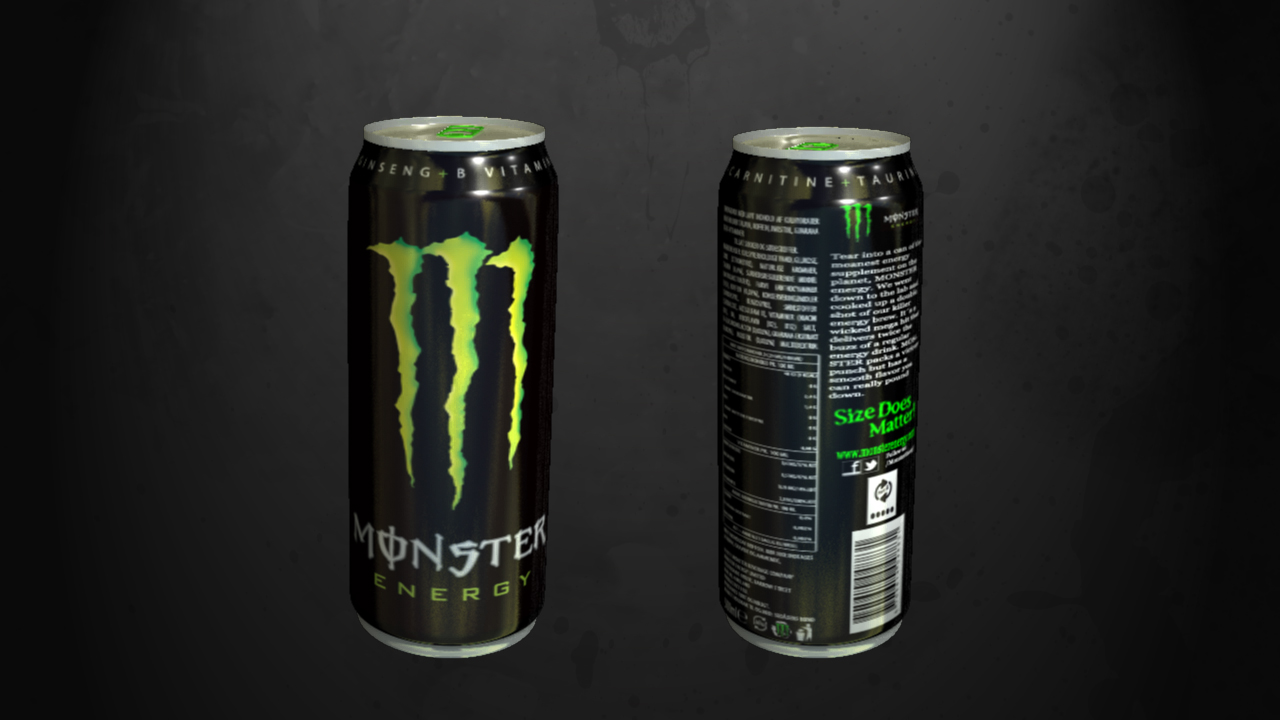

Other energy drinks like Red Bull, NOS and AMP are marketed by their producers as beverages. The three products involved in the release - Rockstar Energy, 5-Hour Energy and Monster Energy - are all marketed as dietary supplements. The FDA has just released its data on problems reported among users of three caffeinated energy drinks.
#Amp energy drink death cracker#
who consume caffeinated energy drinks may be dying right and left (Because of the caffeine? The drinks? Hard to say) but that isn’t stopping food manufacturers from adding it to everything: Cracker Jacks, jelly beans, Gummi Bears, brownies, mints, and maple syrup. The clinical toxicology of caffeine: A review and case study. Spilling the beans: How much caffeine is too much? fda.gov/consumers/consumer-updates/spilling-beans-how-much-caffeine-too-much/

Sugar consumption, metabolic disease and obesity: The state of the controversy. Impact of acute energy drink consumption on blood pressure parameters: A meta-analysis. Risk of energy drink consumption to adolescent health. National Center for Complementary and Integrative Health.
#Amp energy drink death update#
Update on emergency department visits involving energy drinks: A continuing public health concern. Cardio- and cerebrovascular responses to the energy drink Red Bull in young adults: a randomized cross-over study. Energy drinks: Food, dietary supplement, or drug? /pmc/articles/PMC3839443/ Caffeinated energy drink consumption among adolescents and potential health consequences associated with their use: a significant public health hazard. Energy drinks induce acute cardiovascular and metabolic changes pointing to potential risks for young adults: A randomized controlled trial. Death of a young man after overuse of energy drink. Dangerous mistake: an accidental caffeine overdose. You may be at a higher risk of having a potentially life threatening side effect from overdoing it on energy drinks. If you have a heart condition, diabetes, or a mood disorder, be extremely careful of how much caffeine you’re getting. There have been seizures in young adults that are linked to getting too much caffeine. One serious possible side effect of energy drinks are seizures. That’s not good news for your mental health. Getting too much caffeine can mess up your sleep schedule and make it harder for you to fall asleep. This could be related to the way that energy drinks affect your sleep. Is it worth the worry? Research shows that people who drink energy drinks can experience anxiety and other mental health issues. High blood pressure is linked to a higher risk of heart failure.

If you have these effects consistently, that can put extra pressure on your ticker and cause issues in the future. Several studies have also found that energy drinks increase heart rate and blood pressure. Could hurt your heartĬaffeine is the real heartbreaker here. Here’s a closer look at the top dangers associated with guzzling energy drinks. mental health disorders (like anxiety and depression).Research shows a possible relationship between energy drink use and a range of issues, including: (FYI: There are plenty of sugar-free energy drink options to choose from, too.) Like a quick burst of easy-to-use energy for your body - but getting too much can be bad for your bod. A chemical that your body can make out of certain amino acids. An amino acid that’s important to your immune and nervous systems. A tea made from parts of a South American plant. It’s absorbed slower than caffeine from coffee so the effects last longer. A plant that contains caffeine and other energizing chemicals. (It’s also common for several stimulants to be in one drink.) Here are some common ingredients to check for on your fave drink’s ingredient list. IngredientsĮnergy drinks can get their “energy” from different sources. What’s the big deal about all that caffeine? Getting way too much caffeine could lead to potentially serious symptoms like an irregular heartbeat or seizures. True caffeine toxicity, or a caffeine overdose, tends to start at about 1,000 milligrams per day for adults. According to the FDA, getting 400 milligrams of this stimulant per day isn’t usually associated with nasty side effects, but some people might be more sensitive to caffeine.

Stacking energy drinks and coffee means you can get a *lot* of caffeine pretty quickly. (For reference, an average 16-ounce cup of joe is about 200 milligrams of caffeine.) But some, like Bang Energy, can have upward of 300 milligrams. Common 16 ounce energy drinks contain 70 to 240 milligrams of caffeine per 16-ounce container. What exactly is lurking in that neon can of energy? Caffeine is the biggie.


 0 kommentar(er)
0 kommentar(er)
